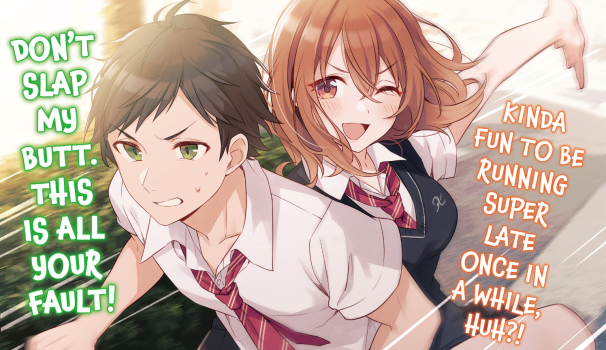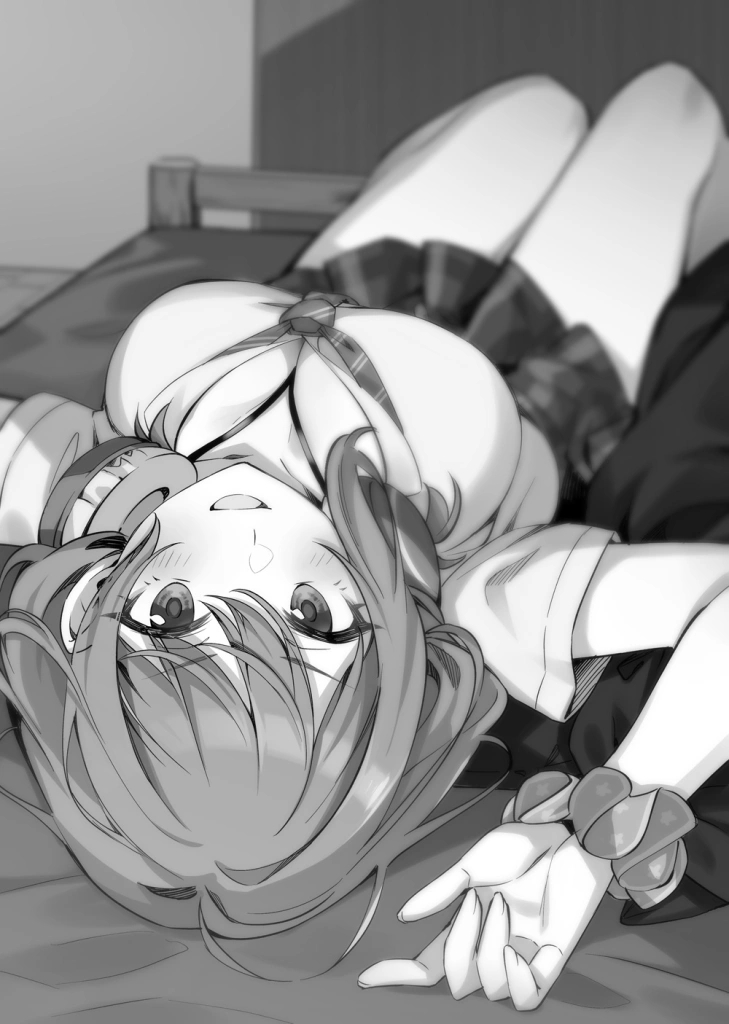Books: My Friend’s Little Sister Has it in For Me
September 3, 2022 · 0 comments
By Jonathan Clements.

Playfully beginning with a little Austen pastiche, as in “It is a truth universally acknowledged…” the hero of My Friend’s Little Sister Has it in For Me starts as he means to go on, ranting about the simplistic stereotypes of so-called romances in the world of anime and light novels. With all the energy of a stand-up comedian, he rails against the sheer stupidity of suggesting that girls “like bad boys”, which he regards as a self-justifying excuse from would-be abusers. Not to mention the sheer illogicality of expressing your interest in someone by behaving like a dick towards them, and in that regard he lets both boys and girls have it with both barrels.
But there’s the problem. Because in a world where logic reigns, in a world where people behave like reasonable human beings and smile at the people they fancy and ignore the people they don’t, someone like Akiteru has to concede that girls just don’t like him.
So, when his best friend’s irritating little sister Iroha lets herself into his house, and sprawls all over his bed reading his manga and listening to his music, he’s got a choice. He can decide that she is some sort of psychopath, hell-bent on tormenting him, or concede that, deep down, she is struggling to process very different feelings towards him. “Sure, she gives hoots about me,” he says in Alexandra Owen-Burns’ witty translation. “But they are hoots of hate.”
Amid such teenage angst, Akiteru is trying to wangle a job placement through his uncle, a conveniently wealthy CEO who inconveniently seems to insist that his protégé should on no account have a girlfriend. But Uncle has his reasons for trying to poach Akiteru out of school, since Akiteru and some online friends of his are self-starters who have already put together and released an online game to great success.

Repeatedly in My Friend’s Sister…, the characters engage with the possibility that the otaku of the world are occupying a consensual hallucination, vainly believing that the tropes and morals of anime are linked in any way to the way that humans actually behave. I was veritably punching the air with excitement at the very idea – even as the characters bumped into each other, stammered their true feelings, walked in on each other on the loo and obsessed about boobs, several of them were ready to pop their heads over the parapet and suggest that this was all nonsense. Unfortunately, one of them is Akiteru’s lascivious Uncle, who thinks it’s cool to proposition random waitresses because “if you like someone, you gotta let them know.”
To be fair, Akiteru disapproves of this, too, but the characters’ early suggestion that they might break out of the confines of light-novel predictability, and actually turn into, well, novelistic entities turns out to be a little over-confident. It ended up reminding me of similar gaslighting in I Want to Eat Your Pancreas, in which the author hectors people about how everybody should read more, although if they did, they would see how ridiculously derivative of Haruki Murakami the book they were reading was.

But I digress, because Uncle has a modest proposal. He is happy to put Akiteru to work at his software company, part-time while he is still at school, on the condition that he pretends to be the boyfriend of Mashiro, yet another girl parachuted into the plot, who turns out to have been a childhood playmate of his, and who is just about to be a transfer student at his school.
And so, yet another harem story grinds into action, with Akiteru obliged to keep his friend’s Little Sister at arm’s length, while also pretending to be lovey-dovey with a classmate who despises him, while also fending off the advances of his schoolteacher, who turns out to be the pseudonymous illustrator with whom he has been collaborating online over his game project.
Author Ghost Mikawa’s Afterword talks through the conversation he had with his editor, in which the idea for My Friend’s Little Sister took shape. And, interestingly, it was born out of a project to come with a more adult office romance, but one which required the characters to know each other in advance, otherwise their interactions would constitute workplace harassment. Hmm, now there’s a thing. Maybe Japan’s obsession with osana-najimi childhood friends reunited serves some sort of legal purpose, instead of merely being a means of supplying pre-existing relationships off-the-peg?

Often in the light novel world, one detects the faint shadows of creators keen to break out of the confines of the genre – and let’s face it, it is a genre, defined often by what’s lacking. Some of them, indeed, do manage it, and I wonder if “Ghost Mikawa” is another, because there are faint traces here of the story he could have written, shorn of the clumsy hat-tips and gamified motivations of harem stories. His protagonist’s questioning of the tropes of romantic fiction have real potential, as does the idea, somewhat redolent of Mamoru Hosoda’s Belle, of the unexpected connections between real and online identities. Later in the book, he even ditches Akiteru’s callow point of view, swapping it for chapters told in the voices of Mashiro and Iroha, not only making their true feelings plain, but turning the expectations of the reader on their head.
Akiteru, it turns out, is not the protagonist. He is a clueless interloper in someone else’s story, and this first book in the series ends in her voice.
Jonathan Clements is the author of Anime: A History. Ghost Mikawa’s My Best Friend’s Little Sister Has it In For Me is published by J-Novel Club and available in the UK from Anime Limited.
Leave a Reply